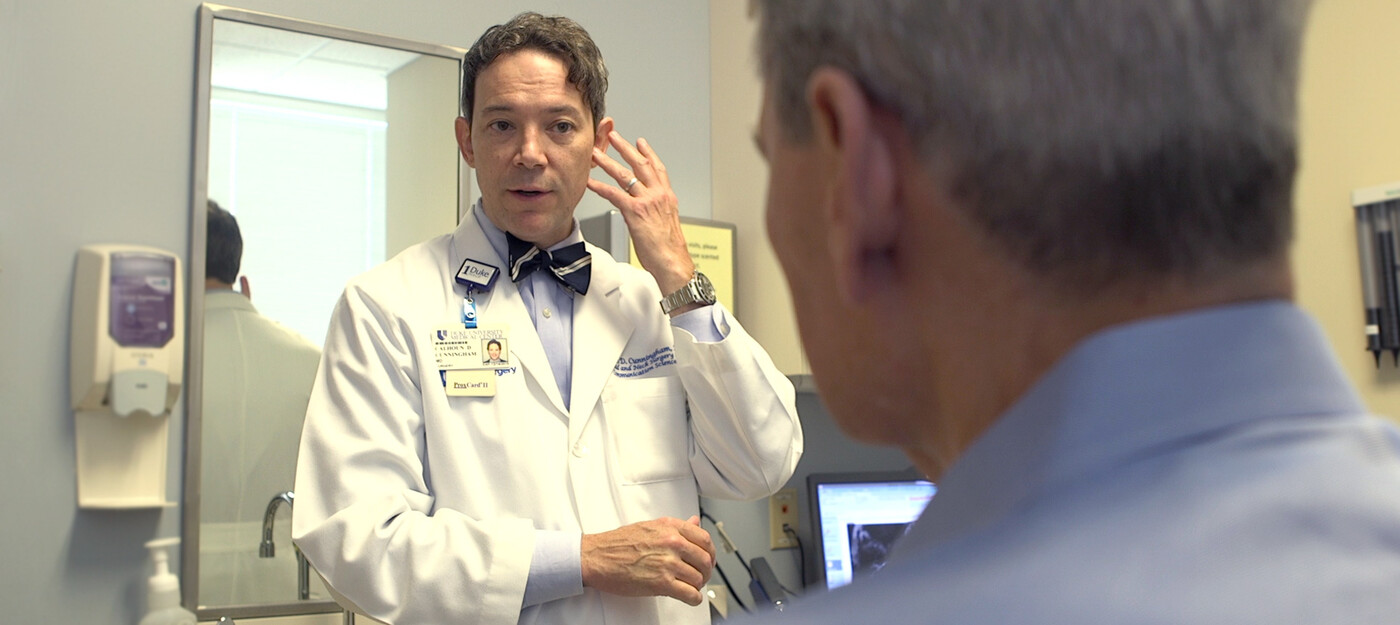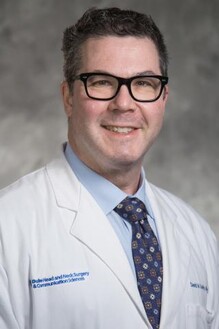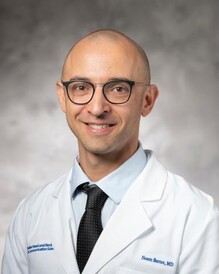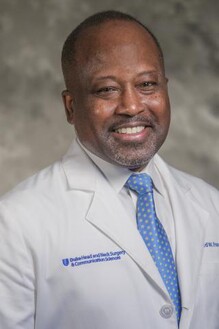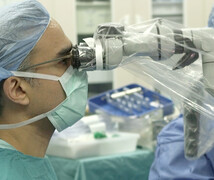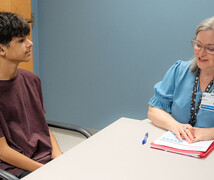If you’re experiencing a serious ear-related concern that’s affecting your balance and/or hearing, you don’t have to live with it. An otologist or neurotologist is a highly specialized ear, nose, and throat (ENT) doctor who may be able to find the root of your problem and recommend procedures to treat:
- Complex ear disease
- Hearing loss that could be improved with an implantable hearing device
- Tumor in or near your ear, like an acoustic neuroma
- Need for a revision ear surgery
- Complicated vertigo (dizziness) that’s not improving
- Recurrent or chronic ear infections
“Anybody who feels their ear problems are not getting better should see an expert,” said David Kaylie, MD, MS, a Duke otologist/neurotologist with more than 15 years of experience. “Our advanced specialists treat conditions that are not typically seen by general ENT doctors. Our experience and specialized tests allow us to look at symptoms and conditions that might lead to better management of complex diseases.”
What Is an Otologist/Neurotologist?
Otologists/neurotologists complete an additional two years of training (known as a fellowship) to better treat ear disorders like cholesteatoma, superior canal dehiscence syndrome, and Meniere’s disease. Otologists specialize in diagnosing hard-to-treat or recurrent middle ear problems and performing complicated ear surgeries. Neurotologists focus on neurological-related and inner ear concerns, including skull base tumors, implantable hearing devices like cochlear implants and bone conduction hearing aids (auditory osseointegrated devices), and balance disorders. Many doctors are fellowship-trained as both otologists and neurotologists, and these areas of expertise can overlap.
Right Tools for the Job
Otologists/neurotologists are trained to use specific techniques and tools to avoid damaging important structures -- such as the brain or facial nerves. A major academic medical center like Duke gives our otologists and neurotologists access to advanced surgical technology such as specialized and up-to-date operating microscopes. These measures help preserve functions like hearing, speaking, and swallowing and reduce the risk of complications.
Helping People Find Relief
Dr. Kaylie said one of the most gratifying parts of his work is helping people solve problems that they thought couldn’t be solved.
“So many times, I hear people say, ‘Well, I figured I’d just have to live with it.’ They’re surprised when I tell them we can fix it,” Dr. Kaylie said. "It’s hugely rewarding to be able to help people who have had a problem for a long time that hasn’t been resolved," he said.
